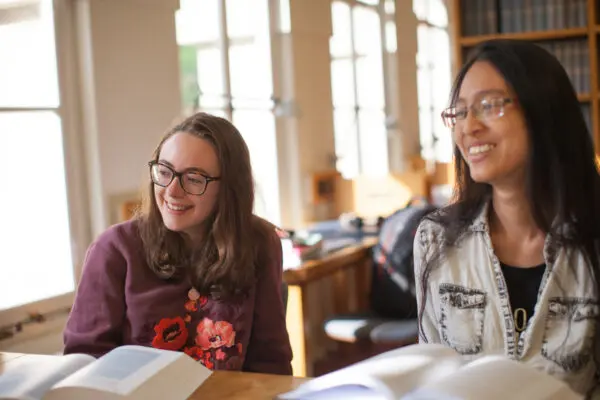
Oxford, United Kingdom
PPE: Globalisation, Populism, and Identity
When:
11 August - 29 August 2025
Credits:
7.5 EC
Read more
Political Science
When:
23 June - 29 June 2013
School:
International Political Anthropology Summer School (IPASS)
Institution:
University College Cork
City:
Country:
Credits:
8 EC

Call for the International Political Anthropology Summer School on
Devotion to Leadership
23-29 June 2013, Bolsena Study Center
The purpose of this summer school is to explore contributions by classical philosophy and political anthropology to understand leadership. It will be relevant for post/graduate students in sociology, political science and anthropology, interested in the issue of political leadership.
Since the 16th century, in politics, economics and science/ technology the modern world has made a series of strongly worded and overarching claims about development, economic growth, political democracy and freedom, guided by a belief in an inevitable progress which will be achieved once all the ‘traditional’ boundary lines that were hindering its way were removed, giving way for a blossoming of the individual. Contemporary debates on globalization only exemplify the most overarching of such claims. Both ‘globalizers’ and ‘skeptics’ assume that ‘globalization’ can somehow lead to universal progress and the spread of rights and benefits to the entire planet, together with the growth of individual and private enjoyment of consuming goods – a primary measure of prosperity and political liberty; an approach that was pushed beyond any meaningful limit.
This is why the term ‘devotion to leadership’ carries an important message. ‘Devotion’ can be traced back to ‘Eros’ and passionate striving, carrying the connotation of overall benefits and its expression through harmony and beauty, concerns of vital social importance. The noun ‘leadership’, on the other hand, indicates that such genuine prosperity must be rooted at the basic level of a mature, noble personality who can give example, and not just at the level of the individual of mass democracy. Rather than contrasting ‘individual’ and ‘society’, ‘leadership’ focuses on their union, the ‘causes’ that make the mind to think, that urge the appreciation of harmonious and meaningful social relations. This is why the world of our experiences exists only as the embodiment of a personal knowledge driven by goodwill on the social level.
A fundamental aspect of genuine social flourishing concerns the leadership qualities present in everybody, which can only be formed in a community. Such prudence can only be acquired with a deep sense of dedication to reality. Goethe said in Faust II that “Only the present is our happiness”, as it cited by Pierre Hadot in his Philosophy as a way of Life.
However, modern ‘leadership’ is far from being a beneficial normative development in our everyday; it is a concrete and quite problematic historical process. This can be studied by gaining a proper distance from it, by examining quack politicians and ideologised political movements. This Summer School will focus on the constitutive, inevitable links between this kind of leadership expansion and the spread of modern science and technology, rendering timely the example of totalitarianisms. For this, it is first of all necessary to realise how specific and delicate entity is leadership, fair dealing and integrity, and the dedication to it.
Costs: the Summer School will have no fee. Following even in this sense the spirit of Plato’s Academy, the philosophy of this summer school is to minimalise the involvement of the circularity of money in academic life. The School will be self-supporting for meal and drinks, with free donation for the accommodation.
Contact number: Diletta Tonatto +393458060926, diletta.tonatto@gmail.com
Application deadline: 15 May 2013
Summer School Staff: Agnes Horvath (Cambridge University), Arpad Szakolczai (University College Cork); Bjorn Thomassen (American University of Rome), Harald Wydra (Cambridge University), Marangudakis Manusos (University of the Aegean).
Guest Speakers: Tom Boland (Waterford IT), John O’Brien (Waterford IT); James Fairhead (University College Cork)
Agnes Horvath (Cambridge University), Bjorn Thomassen (American University of Rome), Harald Wydra (Cambridge University)
It will be relevant for post/graduate students in sociology, political science and anthropology, interested in the issue of political leadership.
This Summer School will focus on the constitutive, inevitable links between this kind of leadership expansion and the spread of modern science and technology, rendering timely the example of totalitarianisms.
When:
23 June - 29 June 2013
School:
International Political Anthropology Summer School (IPASS)
Institution:
University College Cork
Credits:
8 EC

Oxford, United Kingdom
When:
11 August - 29 August 2025
Credits:
7.5 EC
Read more

Oxford, United Kingdom
When:
21 July - 08 August 2025
Credits:
7.5 EC
Read more

Barcelona, Spain
When:
14 July - 01 August 2025
Credits:
6 EC
Read more